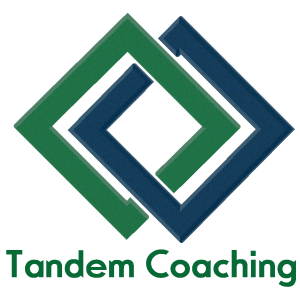We interviewed one of our past student, Christine Thompson, and asked her a few questions about agile coaching and professional coaching, and how professional coaching skills help her as an agile coach in her daily life.
If you are impressed with her story, learn how professional coaching skills can help you!
How have you taken these professional coaching skills and brought them into your life as an Agile Coach?
They seem like they can be two different things, so how do you compile those together?
In some respects, they do seem different until you start doing it. And then what I found is when I started bringing in coaching into my work as an Agile coach, I wonder how I ever worked as an Agile coach without it. Because it’s just become absolutely central to what I do.
Every day, every conversation, every meeting is about coaching. And it’s just changed things across the board for me. So it’s a completely different mindset of asking open questions. And having that curiosity to help people to see what possibilities that they’ve got in front of them.
I mean, one example is the retrospective, it’s completely changed the way that I facilitate a retrospective now. Rather than just running through the comments, and maybe asking a couple of clarifying questions, I am getting in behind the comments that people have made, especially some of the positive comments that we might have skated over before. “Why is that a good thing?” “What does that give you?” “How does that help you?” “Why is it important?” “Was is it specifically that you want to do more of?” I am just digging into things with people and just helping them to understand what’s behind things for them, and how, what’s behind that can change their outcomes, like changing their behaviors and their activities will change their outcomes.
So it’s just that open questioning, that curiosity, and the constant mirror, holding up that mirror to people and reflecting things back. And it’s changed the way I do it in terms of in the past that might have been a judgmental. Have you noticed that you’re doing this? It’s now I’m saying this and leaving it to their judgment.
It’s a little bit mixed in the way people take to it. Because it is a change. So and some people cope with change better than others. So I have a lot of people who really enjoy it, they get a lot out of the conversations that we’re having. Because, of course, this is not only team coaching, this is individual coaching.
So it’s working with the people on my teams on a one to one basis, as well as work with the team as a whole. And a lot of people really value having that kind of conversation that makes them think, and they’ll come away and they’ve really questioned something because I’ve held that mirror up for them. And they’ve really appreciated that.
There’s some people it feels a little bit different. It’s not quite what they used to, and they will say, “just tell me what you think.” But that’s not what I’m about. I’m about helping them to discover what they think. And I think people understand that that’s important and themselves. So I’d say that people really see the benefit from it, but it takes a little bit of time to get used to a slightly different style.
How was it for you to make this dramatic shift from being a consultant to your clients to being a coach, to primarily use your professional coaching skills?
Yeah, well for me, it just makes complete sense. I almost feel uncomfortable about the way I was working before because it’s like my eyes are open now to the possibilities of actual proper coaching.
And it just feels right. Because we know the role of the Agile Coach is to help the team to become empowered and self sufficient. But how? And I just feel like I’ve discovered that how actual coaching of people that helps. So it makes complete sense to me. I love it.
Obviously there there are times when I change hats, I’m not always the coach. There are times when I will take off my coaching hat and pop on my teaching hat because I need to explain something to the tee. But it feels like my coaching hat is that default hat that I have. It just works and it just gives the team what they need and empowers them the most.
If you are impressed with her story, learn how professional coaching skills can help you!





